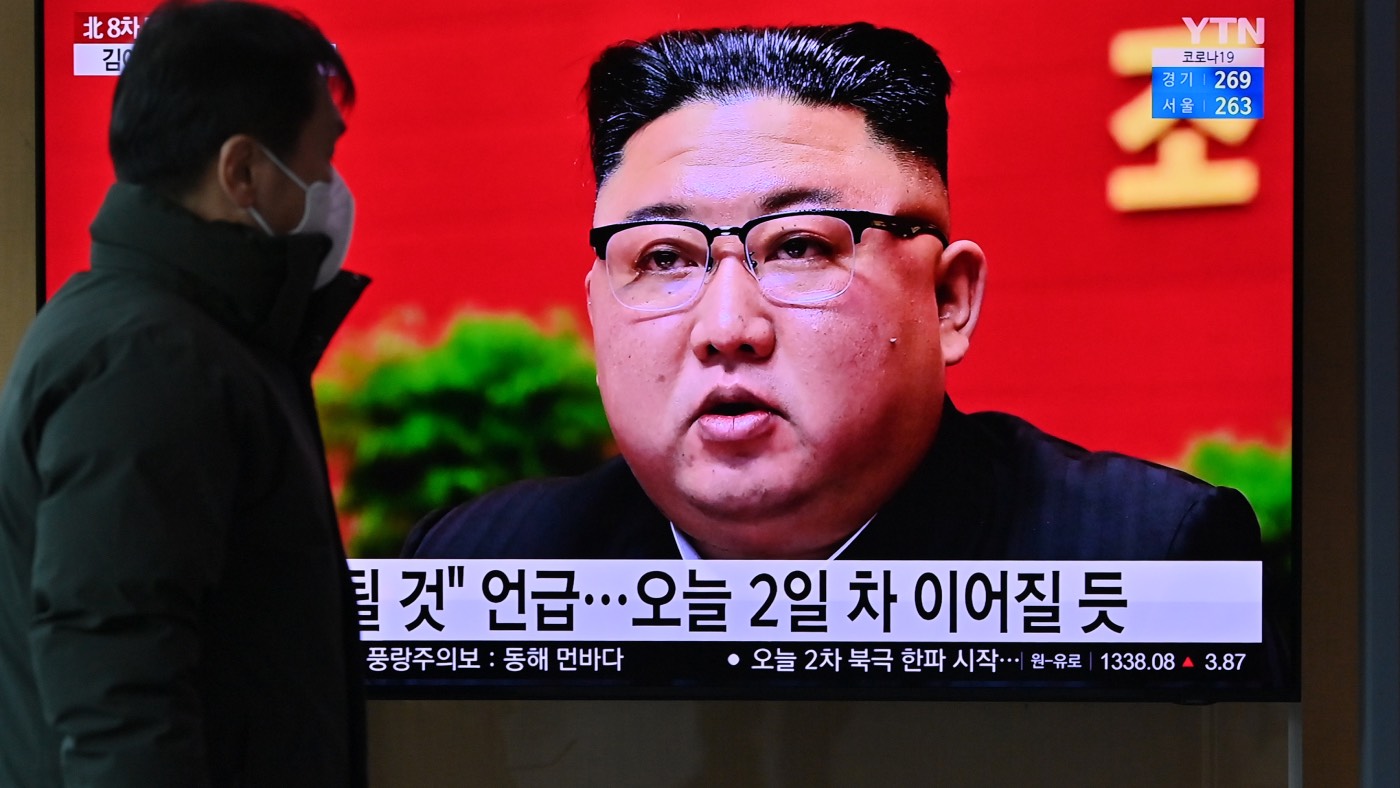Kim Jong-un kicks off rare party meeting with admission of economic failure
Economic sanctions and global pandemic have left the isolated nation’s economy in tatters

A free daily email with the biggest news stories of the day – and the best features from TheWeek.com
You are now subscribed
Your newsletter sign-up was successful
North Korean ruler Kim Jong-un has told a rare meeting of his party that “bitter lessons” have been learned from a “national economic development” strategy that has failed in the face of his country’s “worst ever trials”.
Addressing the first congress since 2016 of the ruling Workers’ Party, Kim admitted that “almost all sectors fell a long way short of the set objectives” of the five-year plan, which ended last month.
“We should further promote and expand the victories and successes we have gained at the cost of sweat and blood, and prevent the painful lessons from being repeated,” he said yesterday at the opening of the meeting in Pyongyang, according to state media.
The Week
Escape your echo chamber. Get the facts behind the news, plus analysis from multiple perspectives.

Sign up for The Week's Free Newsletters
From our morning news briefing to a weekly Good News Newsletter, get the best of The Week delivered directly to your inbox.
From our morning news briefing to a weekly Good News Newsletter, get the best of The Week delivered directly to your inbox.
Foreign observers have speculated that North Korea is facing a serious crisis as a result of the brutal combination of long-term economic sanctions and the almost complete isolation of the country during the Covid-19 pandemic.
In a bid to protect against the virus, North Korea - which has not reported a single case of Covid - “has all but closed off land and sea connections with China, with which it conducts 90% of its external trade”, says The Times.
Beijing’s economic data suggests that “trade between the two countries was down last year by four-fifths”, and in October was at just 1% of the previous month, the newspaper reports.
The secretiveness of the Pyongyang regime means that its most of North Korea’s economic data is kept under wraps, but independent calculations suggest the economy has shrunk by between 8.5% and 10%, and possibly more.
A free daily email with the biggest news stories of the day – and the best features from TheWeek.com
“This is worse than 1992, when the economy shrank by 7.1%, shortly before a famine that killed as many as a few million people,” says The Times.
Amid mounting speculation about the current state of the economy, the Workers’ Party meeting, which is expected to sit for several days, is “being closely watched for signs of a shift in economic policy”, The Guardian says.
North Korean defector Ahn Chan-il, now a researcher at the World Institute for North Korea Studies in Seoul, said: “The party congress has to serve as a spark to restore faith among a frustrated public.”
Chas Newkey-Burden has been part of The Week Digital team for more than a decade and a journalist for 25 years, starting out on the irreverent football weekly 90 Minutes, before moving to lifestyle magazines Loaded and Attitude. He was a columnist for The Big Issue and landed a world exclusive with David Beckham that became the weekly magazine’s bestselling issue. He now writes regularly for The Guardian, The Telegraph, The Independent, Metro, FourFourTwo and the i new site. He is also the author of a number of non-fiction books.